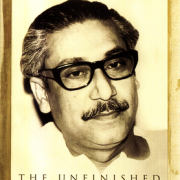Realising Bangabandhu’s poverty-free Shonar Bangla
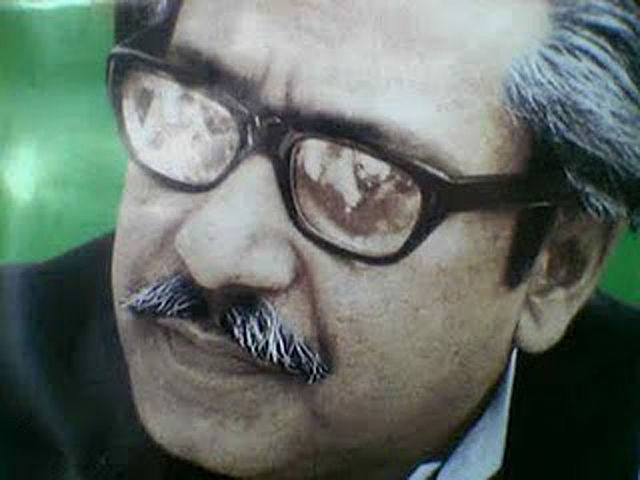 HISTORY is at last taking its own course and putting Bangabandhu Sheikh Mujibur Rahman, the father of the nation, in his rightful place. Gradually, he is emerging as the only reference point of our nationhood and we must congratulate the High Court Bench for removing the confusion created by some motivated vested interest groups including, unfortunately, some academics.
HISTORY is at last taking its own course and putting Bangabandhu Sheikh Mujibur Rahman, the father of the nation, in his rightful place. Gradually, he is emerging as the only reference point of our nationhood and we must congratulate the High Court Bench for removing the confusion created by some motivated vested interest groups including, unfortunately, some academics.
The meteoric rise of Sheikh Mujibur Rahman as Bangabandhu, and as the undisputed leader of the Bengalees, is indeed fascinating. We have seen the rise of many leaders in our part of the world, who were mostly from elite background. Even Moulana Bhashani, though he was from a modest socio-economic background, had a kind of charisma attached to him because of his religious leadership. The other two leaders, A.K. Fazlul Huq and Suhrawardy, certainly had elite backgrounds. Sheikh Mujub came from a rural background and yet absorbed all the leadership qualities of these three dominant leaders of Bengal. In addition, he acquired the spirit of self-sacrifice for the cause of the masses. His was an exemplary leadership style, where only people mattered. He never thought of his own or his family’s comforts. He was indeed a true hero, who never hesitated to face death with a smile; once during the Agartala Conspiracy Case in the mid-sixties and again in 1971 when he was held in captivity by the Pakistanis.
The unusual strength of his leadership was galvanised through focused attention to the people’s cause and by not bowing his head to the establishment. It is indeed rewarding for us, the beneficiaries of his sacrifices, that he helped create a Bangladesh which takes pride in its bright heritage of struggles and still strives to remain true to the inner message of those struggles. The message has been true emancipation of the masses. Thanks to his committed leadership for the creation of a secular, modern, equitable, democratic Bangladesh, we are striving hard to follow his ideals even today. His able daughter is now giving the leadership in a manner which could indeed lead us to the realisation of some of the above ideals. He engaged himself for the public cause from his early life. He went to jail when he was still a student for the cause of the mother tongue. Not only that, he also helped organise the students and the masses as well for standing firm against the autocratic rule of Pakistan elites. He helped form Bangladesh Awami league along with his peers, and finally led this party to engage in the war of liberation in 1971. He was elected to become the prime minister of Pakistan after the 1970 general election. But he was not prepared to bow down to the unethical demand of the ruling Pakistani junta to forget the essence of the six-point based election manifesto. Instead, he waged a war against the junta and asked all to join it. He was taken into custody and was being forced to yield to the pressure. A grave was dug to cow him down. But the giant of a personality, Sheikh Mujib, kept his head high and attracted global attention for freeing him from captivity after the Pakistani military forces were badly defeated by the Bengali freedom fighters with support from Indian forces. He was finally freed, and returned to Bangladesh, his dreamland, on January 10, 1972. He gave a steadfast leadership in rebuilding the country. He was able to give us a well-written constitution within a short span of time. He then gave us a five-year plan, which was a solid document for a pro-poor growth strategy, with the word equity at its heart. He was dead against inequality and initiated a number of reforms to remove it. He then started reorganising all the institutions including the central bank, Public Service Commission, the judiciary and, of course, the Parliament. Despite the global oil crisis and subsequent financial crisis, he put almost all sectors in order. The country, despite the worst food crisis in the preceding year, was poised for a leap forward in 1975. There were all the signs of a bumper crop in most areas. Then came the sudden attack from behind on the ghastly midnight of the August 15, 1975. We are still trying hard to come out of that national trauma. Had this not happened, I am sure Bangladesh would have been on a completely different trajectory of growth and development. The entire history of our country would have been differently written. We, of course, can still learn lessons from his ideals and passion for equity-oriented growth and more inclusive development. The best way to show respect to the greatest of great Bengalees will be to follow his thoughts on more equitable development and pursue the path of realising some of those dreams through our endeavours, collective or individual. I wish to pinpoint some of his pertinent thoughts for carving out an appropriate plan of action for today’s Bangladesh. Of course, most of his relevant thoughts have been reflected in vision 2021 (e.g. the election manifesto of the ruling party). So, I will be quite brief in putting his farsighted ideas here in a nutshell.
* His struggle for independence of Bangladesh was for much more than political emancipation. Economic freedom for the masses was at the centre of his struggle. ”Our struggle will be fruitful only if we can make the living of our future citizens free from all clutches of bondage, if we can make the lives of all our people prosperous, happy and decent, and if I can reduce the burden of sorrows of our people to some extent and realise the dream I have been cherishing even if at the cost of my life (Press statement of Bangabandhu on Decanter 1, 1970).” And he never stopped dreaming of this comprehensive freedom for his people even until his last breath. One can look at his student life, his political activism during his youth, and the days of mature leadership to see his commitment for the emancipation of the poor, particularly the farmers whom he thought were the real heroes. All his life was devoted to improving the lot of these unsung heroes. Indeed, he, in a way, gave his life to implementing the most important revolutionary dream of improving the condition of the downtrodden through the unprecedented economic reforms that he initiated. The vested interest groups must have sensed the likely outcome of his reform programs and hence hit him early from behind so that those dreams could not be materialied.
* The ordinary people recognised the sincerity and commitment of Bangabandhu Sheikh Mujib’s struggle for people’s freedom right from his student days. Not even for a day was he, therefore, out of focus of pro-people politics. He even reminded his political comrades not to forget the value of the people’s trust. ”The day you will do injustice to the love and trust of the people your ‘brother’ Mujib and the party you belong to (Awami League) will be dead. And thus will end the hopes and aspirations of the emerging nation called Bangladesh’ (Bangabandhu’s speech to the newly elected legislators at Engineers Institute, February 15, 1971).” This bent of his mind was rooted long back, as one can see the reflections of it even in early days of his political career. “Do justice to the people, care for the sentiments of the people, respect the sentiments of the people, and allow them to decide (Bangabandhu’s speech at Pakistan Constituent Assembly on September 28, 1955, Karachi).”
* Back in 1956, his pro-poor interventions in Pakistan’s Constituent Assembly speak volumes about his focused attention on pro-poor development. In one of his parliamentary interventions he talked about inequality and undue taxes imposed on the poor. ”If you want to earn money you can earn outside, but when you have come as representatives of the people then you should not become rich at the expense of the poor, because it is the poor who give the taxes, it is their money; you have no right to enjoy at their expense (Bangabandhu’s speech at Pakistani Constituent Assembly on February 14, 1956 at Karachi).” This early formation of his political vision continued to grow consistently, and as a mature leader he delivered a well crafted pro-poor election manifesto based on his historic six-point agenda immediately before the 1970 general election. Ordinary people trusted his words and gave him a thumping majority. Yet, the Pakistani ruling clique did not hand over power to him. Instead, he was taken into captivity and an unjust military repression was imposed on the Bengalees. People took up arms and fought back against the occupying forces. As already noted, the Pakistani army was badly defeated and Bangabandhu was released under pressure from the global community. He came back to Bangladesh as the father of the nation and started yet another journey, that of rebuilding the war-ravaged Bangladesh. This time as well he did not forget the priority needs of the poor and the farmers. Our constitution, the first five-year plan, the budget, all bear testimony to the pro-poor stance of his life-long political commitment. On the June 7, 1972, in a historic speech, he declared: ”I will not allow the rich to become richer. The farmers, workers and the intelligentsia should now get the benefits of socialism.” And he kept his word. All his subsequent actions were geared to the needs of the productive groups of people, including the farmers. He was not against private entrepreneurs either. During the later years of his rule he was shifting gears and creating opportunities for the nascent entrepreneurs. However, the issue of social justice was always paramount to him.
* ”The wage structure in the economy has to be based on social justice. The low income employees and ordinary people must be protected against the attack of inflation” (from Bangabandhu’s pre-election speech to the nation on television and radio on October 28, 1970).
* His pro-farmer policy stance is well known to all of us. His support for jute, modern agriculture using better inputs, and bias towards the co-operative movement augured well in the face of the serious food crisis that the country was experiencing in the early seventies. And he did not deviate an inch from this commitment till his last breath.
* ”I know the people of Bangladesh. They too know me. I love them. They too love me. I never give up if I start an initiative for them.” Indeed, his life was a reflection of ceaseless adherence to this commitment. In a speech on 9 May, 1972 in Rajshahi he confided: ”You know I don’t make fake promises. What do I want? I want that my people don’t go to their beds hungry. What do I want? I want that none of my people remains unemployed.”
On January 18, 1974, he said: ”There are many workers of mine who may be in remote corners of the country going unfed, unclad. They can’t come to me. But often I go to them. I have almost a blood relationship with them. I still see them in torn shirts, with no shoes. If I cannot make them smile, I will not have peace even in my grave.” Such was the depth of his political commitment. Such were his pro-poor feelings.
We have not done much to realise his dreams. The present government, of course, has embarked on Vision 2021, which augurs well for his ideals. The proposed perspective plan, the five-year plans and, of course, this year’s national budget, provide clear hints that some of his dreams may be realised. The challenge for all of us will be to design appropriate action plans and monitoring framework so that all those plans finally get implemented. The historic opportunity provided by the political space created through a credible election should be our best bet for realising the pro-poor and equitable development dreams of Bangabandhu. This, of course, will not happen automatically. It requires political commitment at all levels, and necessary motivation among the rank and file of the bureaucracy and locally elected leaders. The media too can play a positive role by honestly criticising the wrongdoings of the government and thus help the government develop a framework of transparency and accountability. Indeed, the whole nation has to be involved in the struggle for emancipation of the masses, which Bangabandhu cherished in his heart. What could be a better moment than this August, the month of national mourning, to a take a fresh vow to work hard to achieve this lofty goal? Let’s work hard to realise his poverty-free Shonar Bangla (golden Bengal).
Author : Dr Atiur Rahman is Governor, Bangladesh Bank

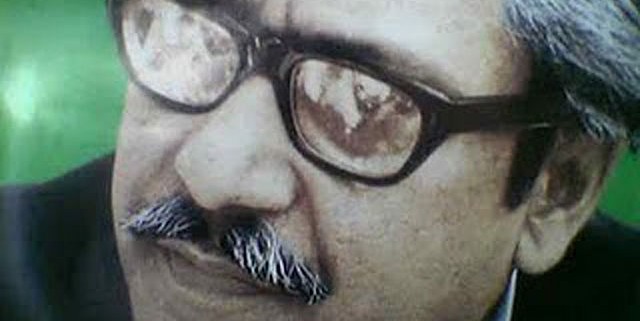
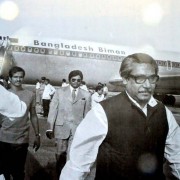
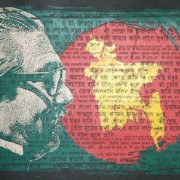
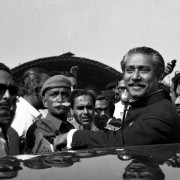
-180x180.jpg)
